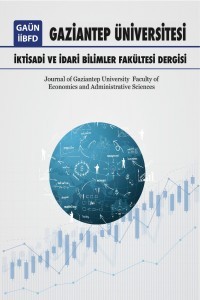
Gaziantep Üniversitesi İktisadi ve İdari Bilimler Fakültesi Dergisi
Yazarlar: ["Mehmet Akif KARA", "Melike HOYLU"]
Konular:-
DOI:10.55769/gauniibf.1182273
Anahtar Kelimeler:Ekonomik Büyüme,Dolaylı vergi,DolaysızVergi,Var Analizi
Özet: Taxes are a fiscal instrument in promoting economic growth and are used to achieve the objectives of fiscal policy. The effect of taxes on economic growth is twofold according to direct and indirect taxes. The effect of direct taxes on resource allocation is to transfer resources to certain areas of the economy through various tax exemptions, discounts and refunds. Economic resources are incentivized through tax benefits. Indirect taxes are levied on expenditures and collected from goods and services. These taxes lead to changes in the relative prices of goods and services, distorting the guiding role of prices in the economy and causing inefficiency in resource allocation. However, these taxes can also contribute to economic growth, depending on curtailing consumption and stimulation of savings. In this study, considering the years 1990 -2019, the effects of direct and indirect taxes on economic growth in Turkey were analyzed using unit root, vector autoregression (VAR) and cointegration methods. According to the results of the analysis, while indirect taxes affect the economic growth positively direct taxes, negatively. The fact that indirect tax collection is easier than that of direct tax may have caused this result. However, we should take into account that while easeness of indirect tax collection may increase resource use, it will distort the fairness of income distribution.